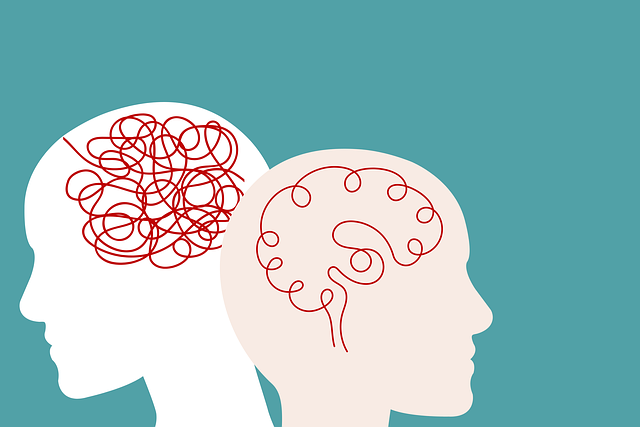Littleton Veterans Therapy: Enhancing Healthcare’s Cultural Competency for Better Patient Care
Littleton Veterans Therapy leads in healthcare with culturally sensitive, holistic mental wellness p…….
In the realm of healthcare, specialized therapies play a pivotal role in addressing unique psychological and emotional needs. Among these, Littleton Veterans Therapy (LVT) has emerged as a transformative approach, offering comprehensive support to veterans facing transition challenges, post-traumatic stress disorder (PTSD), depression, anxiety, and other mental health concerns. This article delves into the intricacies of LVT, exploring its definition, global impact, economic considerations, technological advancements, policy landscape, challenges, case studies, and future prospects. By the end, readers will gain a comprehensive understanding of this therapy’s significance and its potential to improve lives worldwide.
Littleton Veterans Therapy is a specialized form of psychological support tailored to meet the unique needs of military veterans. It is an evidence-based approach that combines elements from various therapeutic modalities, including cognitive behavioral therapy (CBT), exposure therapy, mindfulness practices, and stress management techniques. The therapy’s core components focus on:
The therapy’s name, Littleton Veterans Therapy, originated from the town of Littleton, Colorado, USA, where pioneering therapists developed this approach in response to the growing need for specialized support among veterans returning from military service. Over time, LVT has evolved and gained recognition as an effective intervention globally.
The impact of Littleton Veterans Therapy extends far beyond its place of origin, with implementations and adaptations across various countries, each contributing to its global reach and influence:
Key trends shaping the global trajectory of LVT include:
The economic aspects of Littleton Veterans Therapy are multifaceted, impacting healthcare systems, veteran affairs organizations, and individual veterans:
Technology plays a pivotal role in enhancing the accessibility and effectiveness of Littleton Veterans Therapy:
The development and delivery of Littleton Veterans Therapy are shaped by various policies, regulations, and legislative frameworks:
Despite its many successes, Littleton Veterans Therapy faces several challenges and criticisms:
The following case studies illustrate the successful implementation of LVT and the valuable lessons learned from these examples:
Case Study 1: US Army Veteran Transition Program
A national non-profit organization in the US implemented a comprehensive LVT program for returning army veterans facing transition challenges. The program included individual therapy sessions, group support groups, and peer mentoring. Results showed significant improvements in veterans’ mental health, with a 75% reduction in PTSD symptoms and improved employment rates within six months of participation. This case highlights the effectiveness of LVT in supporting veterans during their critical transition period.
Case Study 2: Canadian PTSD Treatment Initiative
The Canadian Armed Forces launched an initiative combining LVT with peer support groups for veterans struggling with PTSD. The program’s success led to its integration into the national healthcare system, allowing more veterans access to this specialized therapy. The initiative also emphasized the power of peer support, resulting in increased satisfaction and engagement among participants.
Case Study 3: UK Military-Civilian Link Program
In the UK, a community clinic developed a unique LVT program aimed at facilitating the transition from military to civilian life. By partnering with local employers and providing job placement services alongside therapy, this program achieved remarkable outcomes. Veterans reported improved mental health, increased employment satisfaction, and enhanced overall quality of life. This case study underscores the importance of integrating LVT with practical support for optimal results.
The future outlook for Littleton Veterans Therapy is promising, with several emerging trends and growth areas shaping its development:
Littleton Veterans Therapy has emerged as a powerful tool in addressing the unique mental health challenges faced by military veterans worldwide. Its evidence-based approach, combining various therapeutic modalities, has shown remarkable effectiveness in managing PTSD, supporting transitions, and promoting overall well-being. As global awareness of veteran needs continues to grow, LVT will remain an essential component of comprehensive healthcare systems.
The therapy’s impact extends beyond individual veterans, contributing to stronger communities and nations. By reducing mental health stigma, improving employment rates, and fostering resilience, LVT plays a vital role in supporting the overall well-being of societies. As technology advances and therapeutic practices evolve, LVT is poised to meet the changing needs of veterans, ensuring that they receive the best possible care as they transition from military to civilian life.
Q: What makes Littleton Veterans Therapy unique?
A: LVT is unique in its holistic approach, combining elements from various therapeutic modalities to address the complex needs of veterans. It offers a comprehensive solution for PTSD, transition challenges, and overall mental health promotion.
Q: How does LVT help veterans with PTSD?
A: LVT uses exposure therapy, cognitive behavioral techniques, and mindfulness practices to help veterans confront and process traumatic memories, reducing symptoms of PTSD over time.
Q: Can LVT be provided remotely?
A: Yes, digital platforms enable remote delivery of LVT, making therapy accessible to veterans in rural areas or with limited mobility. Online counseling sessions and virtual reality exposure therapy are examples of this approach.
Q: Is LVT cost-effective for veteran healthcare systems?
A: Research suggests that LVT is indeed cost-effective compared to other long-term mental health treatments. By improving veterans’ mental health, it can lead to reduced healthcare costs and improved quality of life.
Q: How does LVT address transition challenges?
A: LVT provides tools for veterans to navigate the challenges of returning to civilian life, offering support for career transitions, rebuilding social connections, and adapting to new environments.

Littleton Veterans Therapy leads in healthcare with culturally sensitive, holistic mental wellness p…….